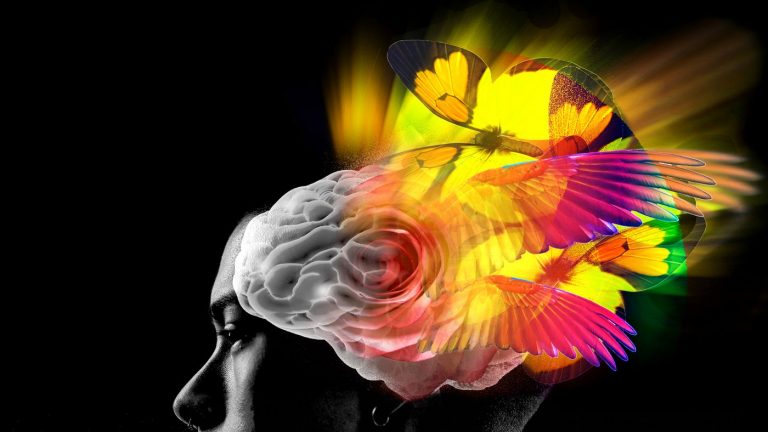Contents
Now, if we hear the phrase “Psychedelic-Assisted Group Therapy”, we think the idea behind the phrase is modern and new to us, but for millennium indigenous communities all over the world have been performing this idea in the form of Sacred Ceremonies. Even if we observe the roots of all the modern Religions closely, we can see this idea in the ritualistic gathering of most of the modern Religions. Some religions continue to ingest Psychoactive Holy Plant-based Medicines as Holy Sacraments in various forms, or symbolise the Psychoactive Holy Plants metaphorically in their Sacred Rituals.
For thousands of years, Amazonian indigenous communities have been consuming Psychoactive Holy Plant-based Holy Medicine in the Sacred Ceremonies to heal individually and collectively. For various beneficial reasons, these Holistic Sacred Ceremonies are still ritualistically being performed worldwide. In the previous year, many Westerners witnessed and experienced the mystical healings of these Sacred Ceremonies and studied the elements of the Sacred Ceremonies.
Based on these studies and many ongoing trials, researchers are beginning to understand the potentialities of Psychedelic Substances and the therapeutic values of these Sacred Substances. Based on these primary understandings, researchers have already established the Psychedelic-Assisted Psychotherapy (PAP), which is currently helping people with treatment-resistant mental diseases. And now researchers are showing the benefits of Psychedelic-Assisted Group Therapy.
History of modern Psychedelic-Assisted Group Therapy
Modern researchers have replicated the foundation of the Sacred Ceremonies in the clinical environment to understand the mechanisms of these Sacred Ceremonies, and based on this knowledge in the mid-20th century researchers found promising results in experimental treatments for alcohol use disorder and neurosis.
Unfortunately, as we already know, Psychedelic research was abruptly interrupted by stigma and prohibition. While presenting an intriguing foundation on which we can build, these past studies are now slightly outdated and not up to present-day clinical trial standards, which limits what conclusions can be drawn from them concerning the safety and efficacy of Psychedelic group therapy.
But recently, with many other studies, in an open-label trial of Psilocybin-Assisted psychotherapy for treatment-resistant depression, social connectedness was found to be a possible underlying mechanism of therapeutic changes. Also, many contemporary trial participants have requested meetings with other trial subjects, confirming the importance of connecting with those who have undergone similar profound Psychedelic experiences. Adding to the evidence gathered in the past, these facts and traditional indigenous ritualistic Sacred Ceremonies may suggest that Psychedelic-Assisted Group Therapy could improve therapeutic outcomes and participant satisfaction.
What research says about Psychedelic-Assisted Group Therapy?
Researchers are beginning to investigate Psychedelic-Assisted Group therapy as a way to let patients connect more deeply, exploring the inner depths of their thoughts together, and broaden access to the potential therapeutic benefits of Psychedelic substances including an increased ability to reset the brain.
According to some researchers, by sharing potentially life-altering Psychedelic experiences together, people could strengthen social connections and boost their sense of belonging, helping the subjugated people reconnect with society. In the Amazonian Communities, it is still also observable that many communities perform Sacred Ceremonies with other communities to create bonding with each other and with Mother Nature.
The researchers suspect that the shared experiences could also amplify accountability between members of the group. Previous studies already have shown that in a social context, being part of a group, being selfless, and helping others triggers the brain’s reward centres, which directly fight depression.
A recent study conducted by Imperial College London has shown that consuming Psychedelic substances in group settings like Sacred Ceremonies or retreats could have positive effects. In this observational, web-based study, the 886 participants were asked to complete a series of online surveys. One survey was conducted two weeks before their Psychedelic experience, another one a few hours beforehand, a third one on the day after their sessions, a fourth one on the next day, and a fifth one four weeks later.
The results showed that the group setting was significantly correlated with increased psychological wellbeing, social connectedness, and other notable mental health outcomes. The path analyses also revealed that this experience of the community during the Psychedelic sessions was a significant predictor of improvement in wellbeing and mental health in the long term. This points towards a potential therapeutic use that is unique to group settings in Psychedelic-Assisted Psychotherapy.
Conclusion
According to Dr. Molyn Leszcz, president of the American Group Psychotherapy Association and a professor of psychiatry at the University of Toronto, who has reviewed a limited report on Psychedelic substances consumption Psychotherapy but does not consider himself an advocate of the usage of Psychedelic substances yet, the idea is to unlock people’s capacity to dive deeper into the emotional experiences, and Psychedelic substances seem to boost what existential confrontation would do for many people.
Psychedelic-assisted group therapy is beneficial for the same reasons as its more conventional counterpart. According to the experts, it allows consumers or patients to feel less isolated as vulnerability becomes a shared experience. Group therapy is especially effective for some conditions like anxiety, depression, bipolar disorder and substance abuse. On a practical level, it can also be very cost-and-time-effective.
References
- Carhart-Harris, R. L., & Goodwin, G. M. (2017). The Therapeutic Potential of Psychedelic Drugs: Past, Present, and Future. Neuropsychopharmacology: official publication of the American College of Neuropsychopharmacology, [online] Volume, 42(11), p. 2105–2113. Available at: https://doi.org/10.1038/npp.2017.84 [Accessed 25th August 2021].
- Carhart-Harris, R. L., et al. (2021). Psychedelic Communitas: Intersubjective Experience During Psychedelic Group Sessions Predicts Enduring Changes in Psychological Wellbeing and Social Connectedness. Frontiers in Pharmacology, [online] Available at: https://doi.org/10.3389/fphar.2021.623985 [Accessed 25th August 2021].
- McDermut W, Miller IW, Brown RA. (2001). The efficacy of group psychotherapy for depression: a meta-analysis and review of the empirical research. Database of Abstracts of Reviews of Effects (DARE), [online] Available at: https://www.ncbi.nlm.nih.gov/books/NBK68475/ [Accessed 25th August 2021].
- Trope, A., Anderson, B. T., Hooker, A. R., Glick, G., Stauffer, C., & Woolley, J. D. (2019). Psychedelic-Assisted Group Therapy: A Systematic Review. Journal of psychoactive drugs, [online] Volume, 51(2), p. 174–188. Available at: https://doi.org/10.1080/02791072.2019.1593559 [Accessed 25th August 2021]
- Wade, D. (1985). Hallucinogenic Plants and Their Use in Traditional Societies – An Overview. [online] Available at: https://www.culturalsurvival.org/publications/cultural-survival-quarterly/hallucinogenic-plants-and-their-use-traditional-societies [Accessed 25th August 2021].
- Watts, R., et al. (2017). Patients’ Accounts of Increased “Connectedness” and “Acceptance” After Psilocybin for Treatment-Resistant Depression. Journal of Humanistic Psychology, [online] Volume, 57(5), 520-564. Available at: https://doi.org/10.1177%2F0022167817709585 [Accessed 25th August 2021].


